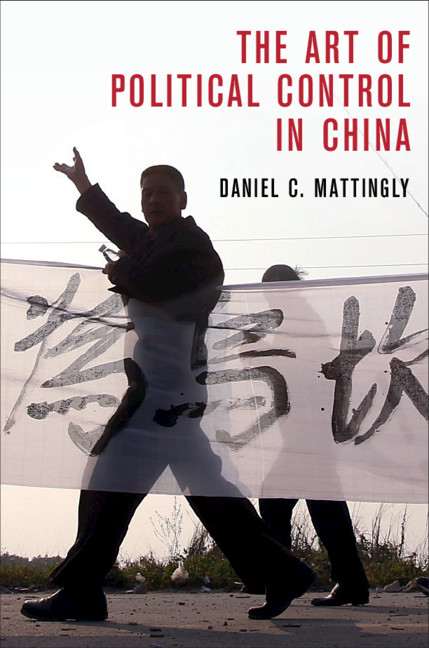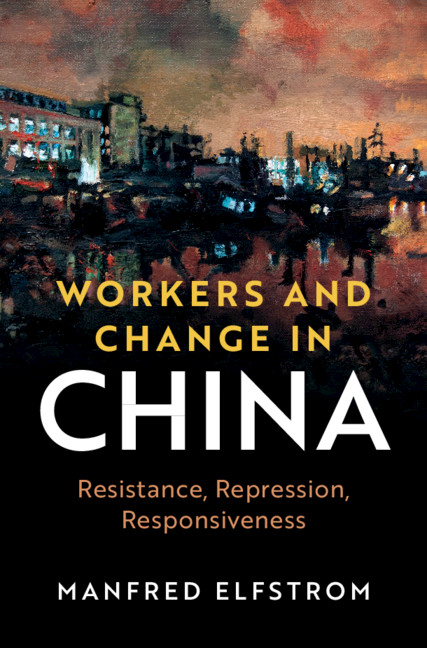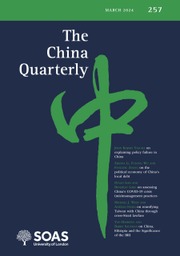Governing Digital China
China's approach to digital governance has gained global influence, often evoking Orwellian 'Big Brother' comparisons. Governing Digital China challenges this perception, arguing that China's approach is radically different in practice. This book explores the logic of popular corporatism, highlighting the bottom-up influences of China's largest platform firms and its citizens. Drawing on extensive fieldwork and nationally representative surveys, the authors track governance of social media and commercial social credit ratings during both the Hu Jintao and Xi Jinping eras. Their findings reveal how Chinese tech companies such as Tencent, Sina, Baidu, and Alibaba, have become consultants and insiders to the state, thus forming a state-company partnership. Meanwhile, citizens voluntarily produce data, incentivizing platform firms to cater to their needs and motivating resistance by platforms. Daniela Stockmann and Ting Luo unveil the intricate mechanisms linking the state, platform firms, and citizens in the digital governance of authoritarian states.
- Provides deep insights into China's digital governance through nationally representative surveys, extensive tech company interviews, and analysis of state procurement documents
- Uniquely integrates perspectives from political economy and political communication, offering a holistic view of digital governance by examining the roles of the state, companies, and societal actors
- Features concise summaries at the end of each chapter, making complex theories and key findings easily digestible for busy digital governance professionals including civil servants, public policy staff, social activists, and regulators
Reviews & endorsements
‘Governing Digital China offers a compelling analytical framework to understand the intricate relationship between the state, platforms, and citizens in shaping digital governance in China. It challenges the conventional account China's top-down policies and develops a novel theory of 'popular corporatism' shaping China's platform economy. A fascinating read!' Anu Bradford, Columbia Law School and the author of Digital Empires
‘Understanding China's current data policies will be critical to anticipating global trends in the information environment in the years ahead. Stockmann and Luo, two experienced analysts of digital China, give us both the theoretical frame for understanding how the country's model for data management has emerged, and the tools needed to explain the impact of the model on governments, markets, and citizens around the world.' Phil Howard, Oxford Internet Institute and Chair of the International Panel on the Information Environment
‘Governing Digital China is a groundbreaking work that illuminates China's digital strategy through extensive research. Stockmann and Luo introduce ‘popular corporatism,' a model of state-tech giant collaboration for online control and innovation. Dismantling misconceptions, the authors reveal regional variations and tensions within this nuanced approach. This insightful book stands as the most comprehensive examination of digital China in the past two decades.' Yuhua Wang, Professor of Government at Harvard University
Product details
November 2025Hardback
9781009360654
220 pages
229 × 152 mm
Not yet published - available from November 2025
Table of Contents
- Acknowledgements
- 1. The digital dilemma
- 2. Popular corporatism
- Part I. Social Media Platforms:
- 3. The role of companies in social media governance
- 4. Citizens and social media platforms
- 5. Implications for political trust
- Part II. The Social Credit System:
- 6. The role of companies in the social credit system
- 7. Citizens and the social credit system
- 8. Implications for trust in the state-company partnership
- 9. Brave new world?
- Appendix A: Data coding, statistical models, and robustness test results
- Appendix B: Additional tables and figures
- Appendix C: Internet Use in China.










